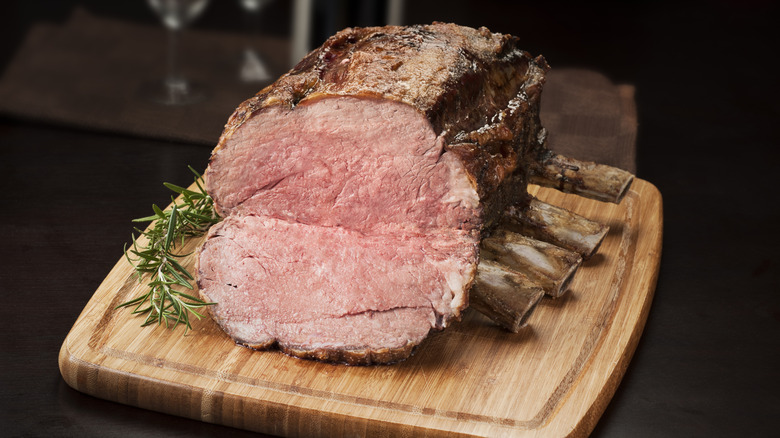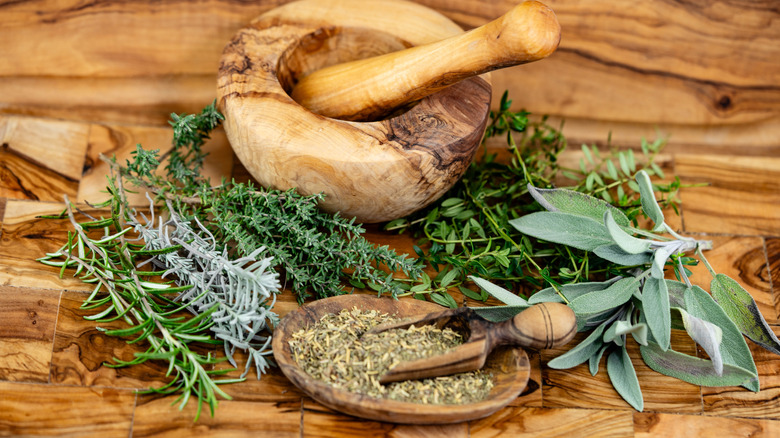Fresh Vs Dry Herbs: Which Is Better For Your Prime Rib Rub?
The classic conundrum: fresh or dry herbs? Prime rib is inherently flavorsome as it is, but thyme, oregano, rosemary, and sage are all among the seasonings that can give it an extra kick. It isn't just about establishing your pick of herbs; their state also matters. Tasting Table spoke to Troy Guard, owner and executive chef of TAG Restaurant Group and mastermind behind Guard and Grace, to shed some light on this decision process. "Fresh is always going to give you the best flavor," he reveals, "it just pops more." He admits there is a caveat, though.
Underseasoning is the biggest mistake you're making when seasoning prime rib. Your herb choice is going to be a factor in deciding how much to use. "If you don't have fresh herbs, dried ones work fine too," Guard says. "Just remember that dried herbs are more concentrated, so you might need a little less." There are plenty of tips you need when cooking with herbs, but generally speaking, fresh is where it's at when preparing a lip-smacking prime rib. Particularly because fresh herbs blend better with compound butter anyway — a backbone of any great rub.
What different effects do they have
Are fresh and dry herbs as far apart as chalk and cheese? Not exactly. But the seasoning state does impart some considerable differences. For one, fresh herbs are the effortless way to give a frozen dinner a restaurant-quality taste — adding visual appeal, bright flavor, and higher vitamin content. Interestingly, fresh leaves carry more polyphenols and avoid a reduction in vitamin C through drying. Although obviously, that's relative to the grams added. Compact dried herbs can be deceivingly heavy.
On the flip side, dry herbs hold better under consistently high temperatures. Dry seasoning is better suited to sauces (or braises that you simmer for extended periods). Take advantage of that potent concentration of essential oils in dried herbs; the removal of moisture leaves their flavor intensified. This preservation process takes their shelf-life from a few weeks to months, even years. And that strengthening is the reason behind adding lesser amounts. If a recipe calls for fresh herbs, a replacement of about ⅓ of dried seasoning is required.
Any talented chef knows about exceptions to rules. Not every dried herb is a good choice. In fact, basil, parsley, and mint are amongst the seasonings best left fresh or well alone. These herbs are just too delicate to retain any taste quality. Luckily for prime rib lovers in a pinch, this dish typically calls for hardier herbs. Oregano, rosemary, sage, and thyme are all suitable for dried consumption. Maybe compromise and use fresh for garnish?

